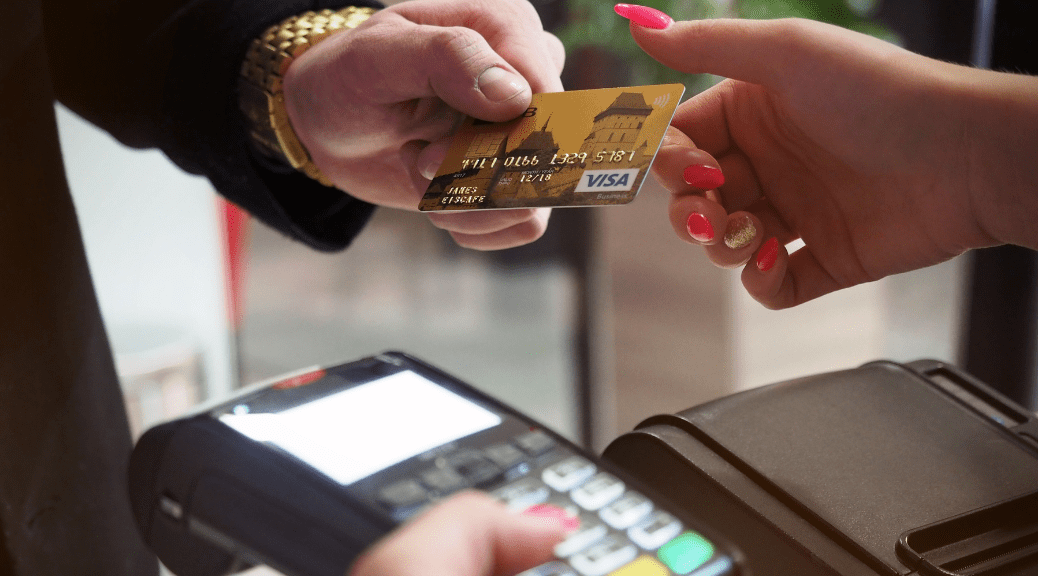Credit Card- Minimum Amount Due

In this era of digital India, credit card is being used a lot. Not only in metro cities, but also in small towns and many rural areas, people use credit cards. However, many things have to be kept in mind while using a credit card. The most important thing in using a credit card is the minimum amount due, which is seen on every credit card statement. Many times people feel that if they pay at least that much money, then the work will go on. Let’s understand the full game of Minimum Amount Due.
Subas Tiwari
What exactly is Minimum Amount Due?
If we talk about the minimum amount due written on the credit card, then it is actually a small part of the entire credit card bill. Usually this share is only 5 per cent. Credit card companies write the total bill, minimum amount due and due date on the statement. Many a times people think of paying the minimum amount due and they think that it will not charge them anything.
So what is the benefit of paying the minimum amount due?
If a person pays the minimum due account, then he will not have to pay the late payment charge. However, after that your loan can grow rapidly, as daily finance charges are levied on unpaid bills. That is, if your bill is 50 thousand and your minimum amount due is 2500 rupees, then paying only two and a half thousand will not benefit you. Even though you may not be charged late payment, but every day huge interest will be charged on your bill, which will cause you huge loss.
And that’s how banks make big money
Often, the question arises in the minds of people as to why credit card companies give a lot of reward points on payment of bills. After all, what is the benefit of these companies? How do these companies make money? The game of Minimum Amount Due is also a means of earning of these companies. If you are late for even one day from the due date, then you will be charged huge interest, which can be up to 48 per cent. The problem is that this interest is charged on a daily basis. That is, the longer you delay paying your bill, the more benefit the credit card companies get.
Tips to Use Credit Card Wisely
- Plan your repayment
Before you consider any purchase on your credit card, you need to have a detailed strategy on the repayment. It is a great idea to pay off your credit card bill before the due date. Not only does this help in improving your credit score, but it also helps in establishing a good credit profile with the lender. Such profiles are often given better deals on personal loans, discounted financial products, and a host of other benefits.
Most banks also offer you the option of paying back your credit card bills through installments. If you are going through a financial strain, such measures will help you take the load off your head and are a welcome gesture. However, in the long run, these often lead to higher interest payments, thus making it important for you to plan your repayment.
- Use a credit card only at trusted merchants
You must be aware of the fact that the odds of a credit card fraud are higher than one with a debit card. That is why it is a great practice to use a credit card only at trusted merchants. It holds in the case of a local store as well as online shopping.
- Borrow only what you can afford to pay back
With a host of different credit card options available, it is often seen that the credit card limit of an individual is much higher than their monthly income. It is important to track your monthly spending and use only an amount that you can be confident of repaying. It will save you unnecessary interest compounding, huge debts, and help you establish a financially sound future for yourself and your family.
- Do not max out the limit
When you are using a credit card, the core idea is that you are spending money that you do not have yet. It might seem tempting for new users pushing them on the path of overspending. The first step here is to ensure that you do not max out your credit card limit, no matter what the situation.
Ideally, you should restrict your credit card usage to 2/3rd of the limit. For instance, if your credit card limit is ₹3 lakh per month, plan its usage in a way that you do not spend more than ₹2 lakh. It will help you maintain a good credit card score which will be of help at a later stage.
Most banks offer the facility wherein you can set a personal spending limit on the credit card. It is a great option for people who aren’t confident about their shopping habits.
- Time your purchases
Every credit card is different, and one of the first things that you need to do is understand the billing cycle of your card. As most credit cards have a monthly billing procedure, if you can time your purchase to days immediately after the bill generation, you will have about 45 days of interest-free period for bill payment. Depending on your card, the period may be longer.
- Keep track of your spending
The proper usage of a credit card requires one to be disciplined and understand their spending patterns. It is only when you keep a detailed account of all your spend will you be able to identify an unexpected transaction without any time wastage.
When such false transactions are brought to the immediate notice of the bank, most of the time, there is room for rectification. Understand that none of this would be possible if you do not keep track of your transactions on the card.
- Be aware of the rewards
Almost all credit cards come with a host of benefits and rewards under its loyalty program. From special discounts on e-commerce sites to free movies or flight tickets, there is a range of benefits for credit card owners. To make the most of them, you need to look up the reward program if your credit card issuer and keep yourself updated.
- Keep a tab on your credit report
Once you are cautious about your spending habits, the next step is identifying an improper detail associated with the card. The details may range from things like a change in your address or employer to amendments in your marital status. Sometimes, mistakes like fraudulent transactions or accounts may be linked to your card.
Unless you read your annual credit report, you will not know about these things. It is a wise practice to invest your efforts in reading and understanding your credit report. It will help you identify errors as well as plan your credit card expenditure.
- Be wise on your credit card balance
While you need to know how to use credit cards and pay its bills on times, sometimes it is inevitable for you to carry forward a balance. In such a situation, you need to be extra cautious and ensure that you are making every monthly payment promptly. Whenever possible, pay off more than the minimum due so that the amount is paid off sooner.
Also, remember that if you have some balance amount on your card, you need to be frugal about the credit card’s usage so that the overall monthly usage is stalled at below 30% of the credit card limit. And you must always remember that paying your credit card bills on time touching the credit card limit while having an existing balance is seen in poor light by potential lenders.
With these tips, you are now prepared to use your credit card in a way that favours your finances and ensures that you make the most of the benefits offered.
Latest Development on Credit Card PaymentUPI payment will also be done by credit cardThe Reserve Bank of India (RBI) has given a big gift to credit card users on 8th June 2022. RBI has approved linking of credit cards with UPI. Earlier this facility was for debit cards, that is, only debit cards could be added to UPI. Under the current announcement of RBI, it will be possible to link the credit card with UPI soon, but earlier this facility was available only for RuPay credit cards. According to RBI, there are currently more than 26 crore unique users and 50 million shopkeepers on the UPI platform. In May 2022 alone, 594.63 crore transactions worth Rs 10.40 lakh crore were done through UPI. Facility will be available after completion of necessary system developmentRBI issued a statement on developmental and regulatory policies after the two-month monetary policy meeting today. In this, the RBI said that in order to promote access and usage, it has been proposed to approve the linking of credit cards with UPI and earlier this facility will be available for RuPay credit cards. According to RBI, this facility will be available after completion of necessary system development and necessary guidelines for this will be issued by NPCI (National Payments Corporation of India) separately. How will you benefit from this?Till now payment through UPI was done only through bank accounts. That is, you could spend only that amount of money in your account. Now credit cards can also be linked with UPI. In this case, you will be able to pay using UPI with your credit card. That means, even if you do not have money in your account, you will be able to spend with UPI. When you spend money with a credit card, you get 45-50 days to repay it. UPI is used everywhere, but credit cards are not used everywhere. That is, if seen, customers will benefit from this move of the government. These Banks are offering RuPay credit cardsv State Bank of India: The public lender offers two RuPay cards—Shaurya SBI RuPay Card and Shaurya Select SBI RuPay card. v Punjab National Bank: PNB offers two RuPay cards—PNB RuPay Select Card and PNB Platinum RuPay Card. v Bank of Baroda: The public lender provides two RuPay cards—Bank of Baroda Easy RuPay Credit Card and Bank of Baroda Premier RuPay Credit Card. v IDBI Bank: The bank offers IDBI Winnings RuPay Select Card. v Union Bank: The government-owned bank offers two such cards – Union Platinum RuPay Card and Union Select RuPay Card. v Saraswat Bank: The bank offers Saraswat Bank Platinum RuPay Card. v Federal Bank: The private lender offers Federal Bank RuPay Signet Credit Card. |
Related
Top 25 Investment Options for Kids in India: A Complete Guide
Planning for the financial security and future needs of children is a vital component of parental responsibility. In India, there exists a plethora...
Job Loss Insurance Cover in India: An In-depth Exploration
In the dynamic landscape of India's job market, uncertainties loom large, with factors like economic fluctuations, technological advancements, and...
Supply Chain Finance (SCF) by Banks in India
In the intricate realm of business operations, Supply Chain Finance (SCF) has emerged as a pivotal financial instrument, fostering collaboration,...


